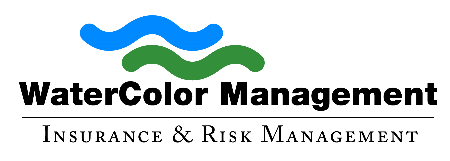
Whether they serve large cities or small, rural towns, wastewater treatment facilities form a lifeline. Communities depend on them for hygienic waste disposal, safe drinking water and other vital services. Damage from extreme weather events threatens facility operations directly, but plants are also vulnerable to power outages. Your wastewater treatment insurance clients must prepare for future power disruptions to keep their customers safe.
Power outages are a particular concern for wastewater treatment plants because they often happen without warning. While the outages themselves are outside your clients’ control, preparation can help them and their customers minimize the impacts.
What Can a Water System Do to Prepare for a Power Outage
Facility and staff preparation reduces power outage risks for wastewater treatment plants and their customers. Advising your clients of the following essential steps can help them prepare.
Make a Communication Plan
The public needs to know the moment a wastewater treatment plant loses power. Contaminated water and supply disruptions place residents, businesses and medical facilities at risk. Prepare statements in advance for boil water advisories and water shut-offs, and have a plan to release those statements through news outlets and social media. Giving customers the option to sign up for emails and text messages can spread the word, too. Prepare those communication pathways ahead of time to prevent unnecessary delays in an emergency.
Prepare the Equipment
Your clients should understand their machinery’s energy requirements and keep backup resources prepared. They should connect essential equipment to emergency generators and protect vital machinery from power surges. Applying those safeguards in advance reduces disruptive service outages and prevents dangerous water contamination.
Correct equipment positioning matters, too. If extreme weather causes a power outage, the facility might face multiple hazards due to flooding or wind damage. Staff should know which parts of the building are most vulnerable to these threats and place the equipment accordingly. A backup generator will not help if it is inundated by water or damaged by falling debris.
Explore Renewable Energy
Wastewater treatment plants have options for renewable energy sources. Installing solar panels reduces energy costs and also creates an alternative fuel source. Depending on location, management, and budget constraints, wastewater treatment plants may access other renewable energy sources, such as wind energy and biofuel. Whichever options your clients choose, they must produce sufficient energy to meet their needs in an emergency.
Train Staff Appropriately
Even the best emergency plans fail without adequately trained staff. Ask your wastewater treatment insurance clients if they have detailed, written plans in place, and inquire about their training procedures. Leaving a binder in the break room is not enough. Staff needs thorough training and regular drills to ensure they know how to respond during a power outage.
About Watercolor Management
Watercolor Management has insured the water industry for over 30 years. Our policies include unlimited defense cost coverage in the event of a lawsuit against you. Call us at (855) 929-0824 or email info@watercolormanagement.com for a quick quote for your Water Business Professional, Products/Completed operations, Pollution and General Liability Insurance.




